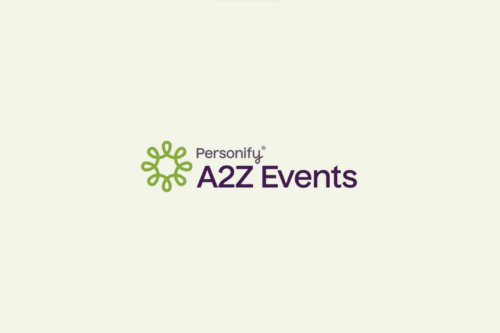As you plan your event, it is easy to get excited about all the activities planned and the goodie bag gifts you picked out. While choosing the insurance plans might not be as interesting, it is critical to talk about insurance for events.
Regardless of whether you need to plan a conference, corporate event, or tradeshow, the right insurance provides you and your business with additional protection against liabilities and financial loss. Securing the proper insurance for events should be a critical component of your to-do list to protect everyone involved with planning the event.
Understanding Event Insurance
Event insurance is the policy or policies you buy to protect the venue, the planners, and everyone involved with the event in case something goes wrong. Problems with your events can arise in several different ways. For example, a snowstorm might make access to the venue impossible, or a participant might slip at the event and suffer a serious injury. Having event coverage ensures that these occurances, and more, are covered.
To secure the insurance policy, you must tell the insurance company about your event so they can write an appropriate policy and tell you how much it will cost. You will submit the proper paperwork if you need to make a claim.
Types of Event Insurance Coverage
As you start to wade into the various options for event insurance, you will quickly discover several different types of policies you will need to consider. The types of insurance your specific event requires will vary depending upon the specifics of what you have planned. Here are some of the major types of insurance for events you will encounter.
General Liability Insurance
General liability insurance is the core type of insurance you will likely need to secure for your event– your event venue might even require coverage.
This type of insurance will protect you if someone gets hurt at your event. If someone slips and falls, for example, the insurance will help cover any costs and protect you from liability.
This insurance will also cover you if the property damage occurs as a result of your event. Imagine, for a second, your team carrying in a heavy piece of equipment and ends up scratching the floor or denting the door frames. In either scenario, the venue will want to recuperate the costs of repairs. General liability insurance will help protect you and your business in this scenario as well.
However, this type of insurance does not cover every scenario that could disrupt your event, so you also want to consider some other types of insurance to complement this policy.
Cancelation Insurance
Cancelation insurance provides your business with additional protection. Despite thorough plans and risk management, serious circumstances can still force your event to be canceled. For example, if the area around your venue is hit by severe weather, such as a large snowstorm or a hurricane, holding even a modified version of your event may not be possible. Other disruptions, such as illness, may also force you to cancel.
When you plan an event, however, you need to pay large amounts in non-refundable deposits to vendors like your caterer or your venue. Even if you do not hold the event, you cannot get this money back automatically. Your cancelation insurance protects you from this significant loss by helping you recuperate your costs if the event is canceled due to circumstances beyond your control.
Property Insurance
You may also want to consider securing property insurance for your event. Commercial property insurance focuses on providing coverage for the property you own for the event. For example, if you bring your own event equipment and decorations, property insurance helps to protect these pieces from damage. Some plans will also provide some coverage if something is stolen.
Workers’ Compensation Insurance
Workers’ compensation insurance is essential to protecting your staff and contractors. If people get hurt while working at your event, workers’ compensation insurance will help them get the coverage they need for proper care. For example, if someone is carrying a heavy piece of equipment and hurts their back and needs to see a doctor, the workers’ compensation insurance will help them get treatment.
Since this coverage helps workers after injuries, it also protects the business. If someone does get hurt and needs medical care, without workers’ compensation insurance, people can try to get reimbursement and coverage directly from you.
Liquor Liability Insurance
If you plan on including alcohol in your event, liquor liability is crucial and is generally a legal requirement. Alcohol can easily lead to accidents and poor decisions and may lead to injuries and damages. If the people who caused the injuries or property damage had been consuming alcohol, that can complicate coverage.
Liquor liability protects you and your business from the legal and financial repercussions associated with alcohol and its potential consequences. It can also help with defensive costs if your business faces any lawsuits because of the alcohol served.
Evaluating Your Insurance Needs
Now that you can see all the scenarios that might lead to insurance claims, you will want to make sure an insurance-need analysis is a part of your event planning. During this analysis, you will look at your unique event and the types of insurance coverage you want to secure. To determine your policy needs, we recommend going through the following steps.
Step 1. Determine your event type and scale. How many people will likely be in attendance? What types of activities will you have as a part of the event?
Step 2. What requirements does your venue have for insurance policies? Venues will often require specific types of insurance and a minimum policy size.
Step 3. Will you serve alcohol during the event? What size and type of liquor liability will you need for this?
Step 4. Get your policy pricing options. Speak with insurance providers to get quotes on your event and see which policies best suit your needs.
Assessing Risk Factors
As you start thinking about the event, you also want to perform careful risk assessments to consider where your biggest potential risks and hazards might fall during the event. Some major areas you want to talk about include:
- Crowd control and management
- Fire safety, emergency escapes, and communication with emergency response teams
- Medical emergencies, including both illnesses and falls
- Food preparation and safety
- Property and venue protection
- Weather or extreme events that cause event cancelations
While performing your risk assessment, speaking with insurance professionals for tailored advice about your levels of risk in different areas can help you improve your understanding and your plans.
Budget Considerations
Any event you plan will have a finite amount of resources that you need to allocate properly. When looking at your insurance needs, you will want to get the most possible value for your cost so that you can keep your event protected while still operating within your budget constraints.
To get the most from your potential insurance providers, there are a few strategies you can use:
- Get quotes from a few providers to compare rates and policy inclusions
- Look at bundling policies to get discounts
- Speak with insurance providers about steps you can take to minimize your risk and reduce your cost. For example, you might get advice about improving your safety plan and getting a lower cost.
- Reduce the size of your event. Smaller events tend to have lower insurance costs.
Choosing the Right Insurance Provider
As a part of this insurance process, consider the provider you choose. Working with insurance can be confusing, as you have to consider what is included and excluded from policies and the amount the policy provides for a claim. Therefore, you want to find a provider you can trust. Look for one who can offer:
- Excellent customer service and can help you navigate the complexities
- Experience insuring events like yours
- Excellent reviews from other event professionals
- Diverse policy options that suit your needs.
Incorporating Insurance for Events Into Your Planning
Insurance policies for your events are critical for protecting your business, your team, and you as an event professional. Even the best laid plans can have things go wrong, from property damage to a severe storm that prevents access to your venue.
Without insurance, you have legal and financial risks from your event. If something goes wrong with people or property, you can be legally liable without insurance, while cancelations can leave you financially on the hook for the deposits you already made.
Make insurance preparation part of your event planning to protect yourself and everyone involved. As your businesses and events evolve, regularly update your insurance policies and review your coverage so you can confidently move forward knowing your coverage is in place.







